SEO Report – What Should It Include?

A properly structured SEO report can successfully reassure you that the time and money invested in the SEO process will pay off and that the agency remains transparent in its activities.
Table of contents:
Just a few years ago it seemed that popular performance-based SEO was an ideal and totally righteous solution. The agency, together with the client, simply determined a list of keywords on which the website was supposed to be displayed as high as possible.
Based on the position of these individual phrases, the agency calculated the due amount in a particular month. However, it’s been known for quite a long time that it’s better to stay away from performance-based SEO activities and instead focus on a long-tail SEO strategy which is a much more effective subscription-based pricing model.
Unfortunately, things get complicated when it comes to reports in the subscription-based model. In the case of performance-based SEO, a pdf file generated with the use of a monitoring tool was the basis for settlement.
On the other hand, long-tail SEO takes into account many additional factors. Therefore, including them, all in the report would, at best, lead to a situation when the client isn’t actually able to make heads or tails of it.
Let’s discuss what an SEO report should include, so it brings the most value to the website owners. We’ll also show you an example of reports we prepare for our clients. If you would like to work with us, this is what you can expect!
Characteristics of a Quality SEO Report
A good SEO report is concise, transparent, and comprehensible for the client.
Elements that should be included in the report are usually determined by the type and stage of the cooperation.
SEO takes time, therefore, it’s pointless to expect that the conversion rate of your online store will increase twice only after 3 months of collaboration (although, obviously everything is possible).
Find out more about how long SEO takes to show results.
When starting cooperation, it’s a good idea to establish the stage of development of the website (how many of the most crucial updates and optimizations have been implemented, is the content elaborate enough, are there any technical issues, how many quality backlinks are there?) and its position among market rivals.
If the first stage of cooperation aims at improving the website condition of link parameters, then data concerning page traffic won’t be the most expanded element of the report analyzing this phase.
It’s also essential to determine what’s really valuable – website traffic itself isn’t enough, it needs to lead to conversion.
When it comes to e-commerce, the situation is relatively clear as you can easily monitor the number and value of transactions. In the case of company portals, business card pages, or blogs, it’s advisable to monitor specific goals like:
- the number of inquiries sent with the use of a contact form,
- the average length of web sessions,
- the number of subscriptions to the newsletter.
SEO agencies are responsible primarily for the organic traffic and visibility of a given website in the search results. The lack of conversion combined with the increase in traffic doesn’t necessarily mean that the SEO activities revolve around the wrong keywords.
It may simply stem from a fact that the offer of your market rivals is more profitable (users can effortlessly compare prices or special offers on a few websites) or from an inappropriate website design that doesn’t correspond to the UX principles.
Therefore, if the data presented in the report doesn’t meet your expectations, it’s worth trying to determine the reasons for the lack of conversion before deciding to terminate the contract with the SEO agency.
A quality and transparent report should answer all the questions about the results of SEO cooperation.
At Deante we pay special attention to the reports we send to our clients. That’s why we improved them and asked for feedback. This is what one of our clients thinks about our efforts:
Curious, what exactly does our client like so much?
Keep reading to see an example of Delante’s SEO report!
SEO Report – What Should It Include?
1. Visibility in the Search Results
Increasing website visibility is the first and most important objective of the SEO process. Before attracting any converting users to your website, it’s necessary to ensure that the page is actually displayed in the search results.
Building website visibility on Google is a never-ending story – SEO agencies constantly do their best to improve or maintain high positions and obtain new phrases.
Website visibility can be also calculated by specifying the number of keywords on which the page is displayed in the TOP 10 (on the first page) or in the TOP 50. This data can be obtained from tools such as SEMrush.
Monitoring the number of phrases in the TOP 10 and TOP 50 is beneficial mainly due to the fact that with the use of the abovementioned tools you can easily compare your and your market rivals’ results.
Check out how we present this data in Delante’s SEO reports:
We pay attention to details and make sure the SEO report is transparent and presents the most important and valuable data that will help our clients to understand the results of our cooperation.
2. Website Traffic Channels
The primary goal of SEO is to increase organic traffic (which constitutes 53.3% of Internet traffic on average). However, conducting your SEO activities properly may lead to improving traffic from other channels.
Learn more: SEO: What type of traffic does it impact?
It’s perfect when the SEO report provides information not only about the traffic in general but also about its distribution on individual channels. Thanks to it, you can easily juxtapose SEO, PPC, or social media expenditure with the effectiveness of each of these channels.
3. Conversion and Target Achievement Rate
As it’s been previously mentioned, it’s not only about traffic but also about conversion.
While measuring the conversion rate, it’s important to take into consideration the distinction between different channels. Sometimes it happens that clients want to terminate the contract because sales don’t improve despite significant SEO investments. However, in such situations, it often turns out that the organic traffic generates sales and the decreases refer to other channels (e.g. because clients decide that if they invest in SEO, they won’t spend more on paid campaigns).
But to come to such conclusions, you need to measure and assess your conversion rate separately for each channel.
In the case of clients who don’t operate in the e-commerce sector, it’s worth determining the definition and price of valuable conversion at the early stage of cooperation – so, for example, it’s crucial to decide what’s the value of leads from contact forms on the websites.
4. Seasonality
Let’s be honest. If your store offers ski equipment, it’s guaranteed that there will be an 80% decrease in traffic in your March report, even if you spend a fortune on SEO.
There are many not-obvious seasonal industries, therefore, apart from reporting data on a monthly basis, it’s advisable to take a broader perspective. The organic traffic should be analyzed and compared with the data from a specific month on a year-on-year basis.
In order to make sure that the decrease in a given month is related to seasonality, it’s a good idea to take advantage of Senuto which provides website analysis and seasonality charts. Thanks to it, you’ll be able to determine what organic traffic decreases to expect in a given month, assuming that particular phrases remain in the same positions.
5. Conducted Activities
Many clients know literally nothing about SEO principles, consequently, they may doubt whether the game is worth the candle.
Some people believe that their website positions will improve naturally. Well, if you think so too, we need to disappoint you – it’s not that simple. Find out more in our article – high Google rankings without SEO – is it possible?
Stating what activities have been performed in a given month will not only inspire trust in the agency but also reassure its clients that the money invested in SEO is spent wisely.
6. Last But Not Least – Commentaries
Overwhelming our clients with unintelligible data titled “monthly report” is not our goal.
Without appropriate context, data and numbers mean nothing. An appropriate commentary will show that SEO specialists conducting activities on the website really know what to do and even in case of any possible decreases (caused by e.g. Google updates) they’ll be able to immediately fix the problem.
Moreover, even in situations when everything goes smoothly, we use the report to inform our clients about the subsequent stages of the SEO process.
Anything Else?
Obviously, SEO reports can comprise many different elements such as the:
- analysis of traffic on particular subpages,
- link parameters,
- average time spent on the site,
- the positions of the most prominent phrases.
However, it remains to be evaluated individually whether such information is valuable and brings any benefits to the client. One can be stated for sure, that specialists responsible for conducting the SEO process should regularly monitor all these parameters to be able to quickly refine any weaker website elements in case of necessity.
Did you like our reports? It’s actually only a glimpse of the real thing – we want to give you an idea, but we do not reveal all our secrets. Also, we tailor each report to the client and their preferences, so no two reports look the same. Would you like to get one of these at the beginning of every month?
Contact us to talk about the best SEO service for your business! You too can get spectacular results featured in the best SEO report in the industry (according to our clients)!
This is an update of an article published in 2020.

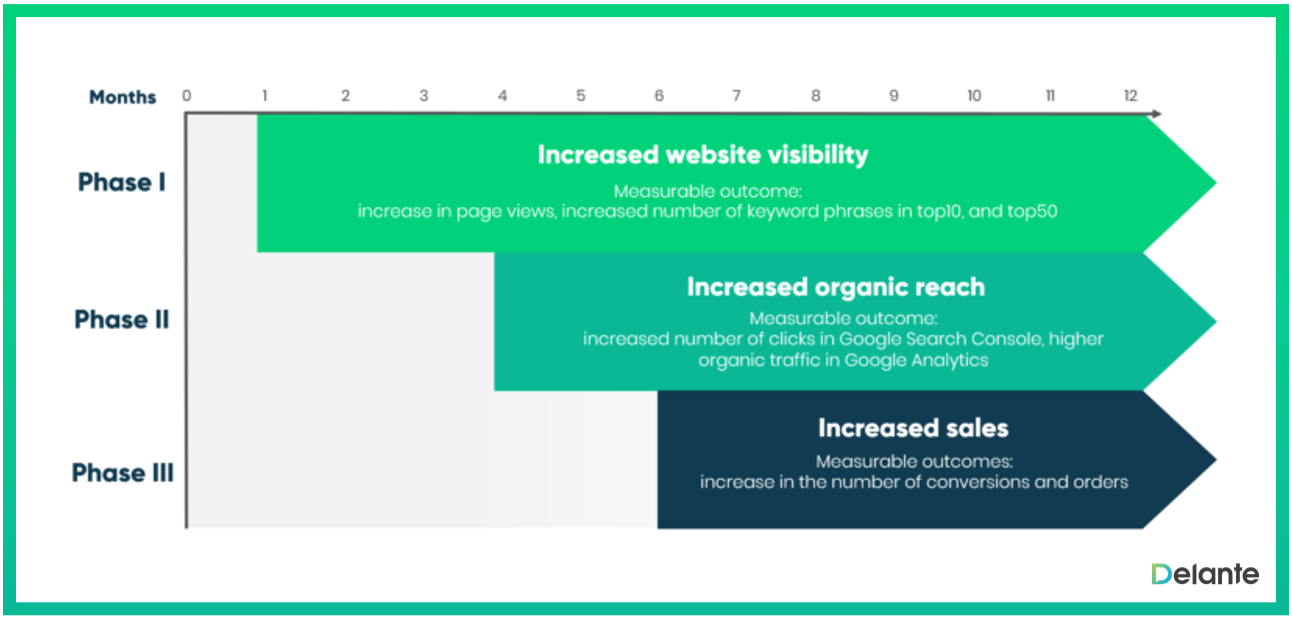
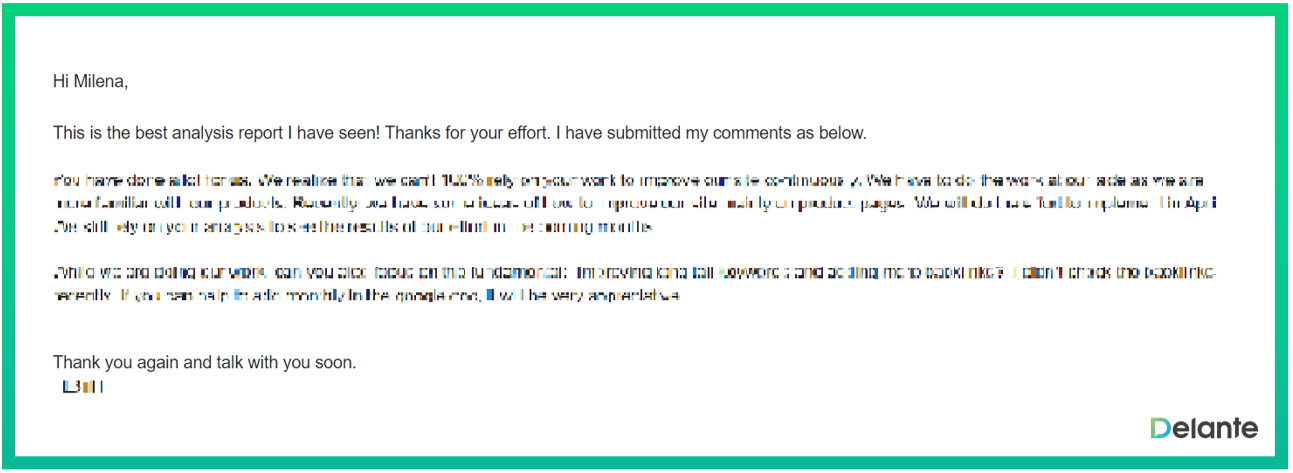
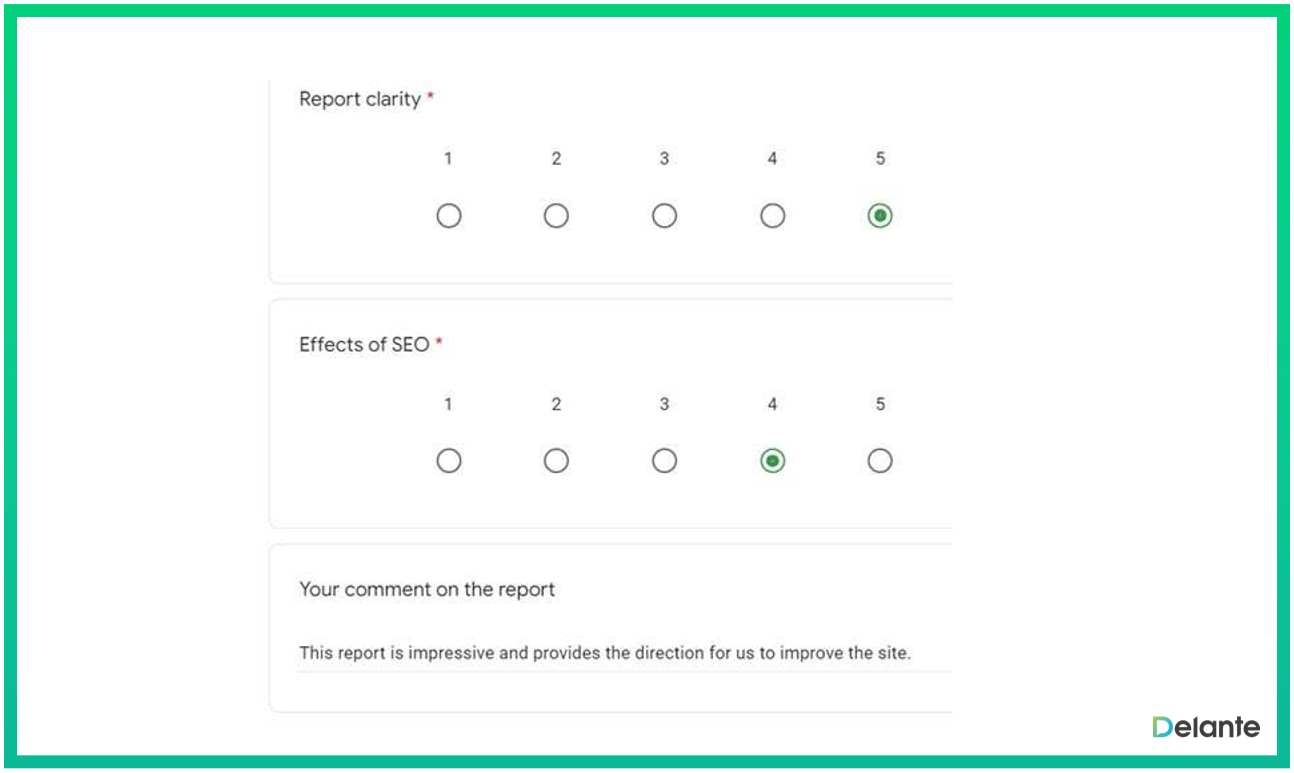
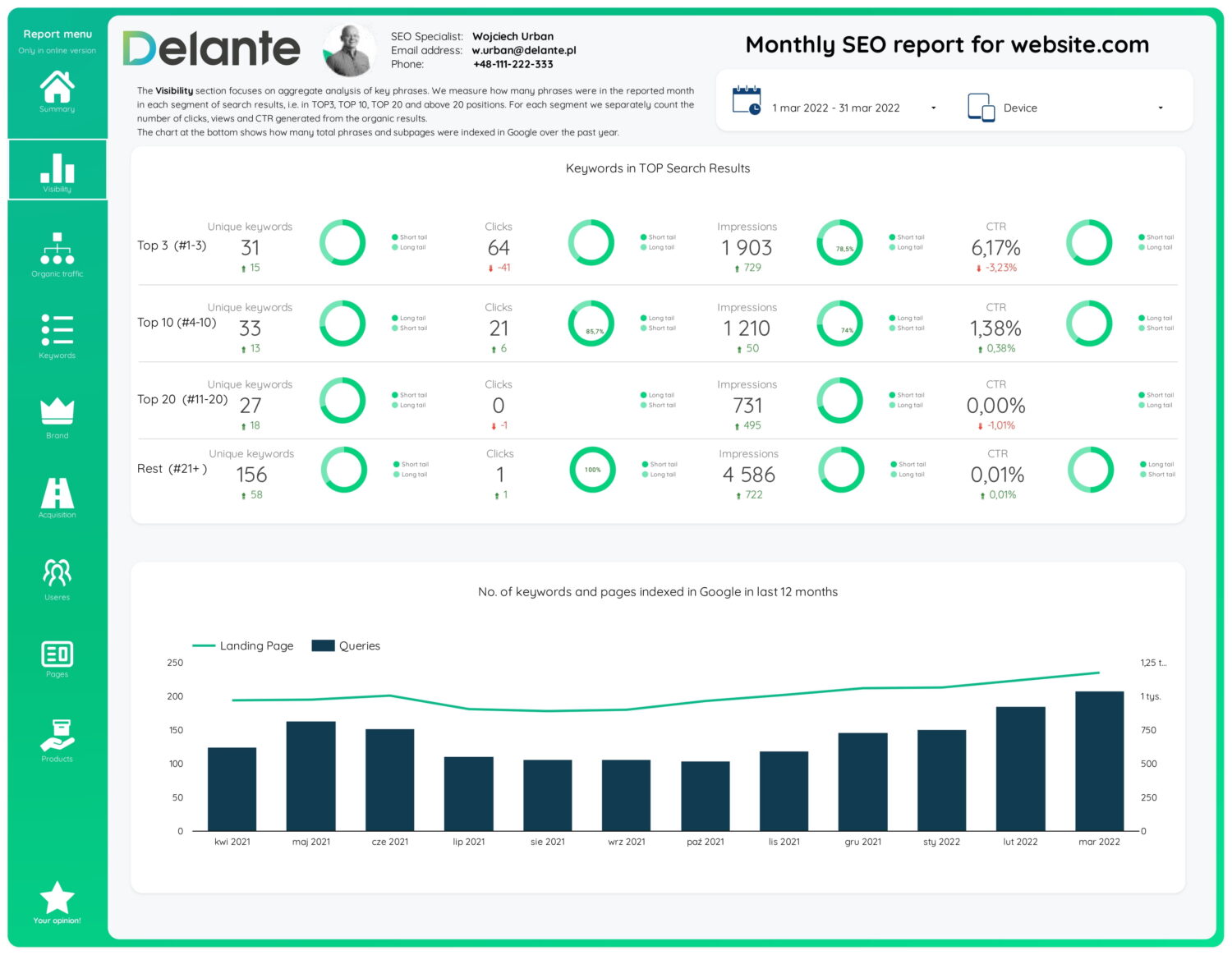
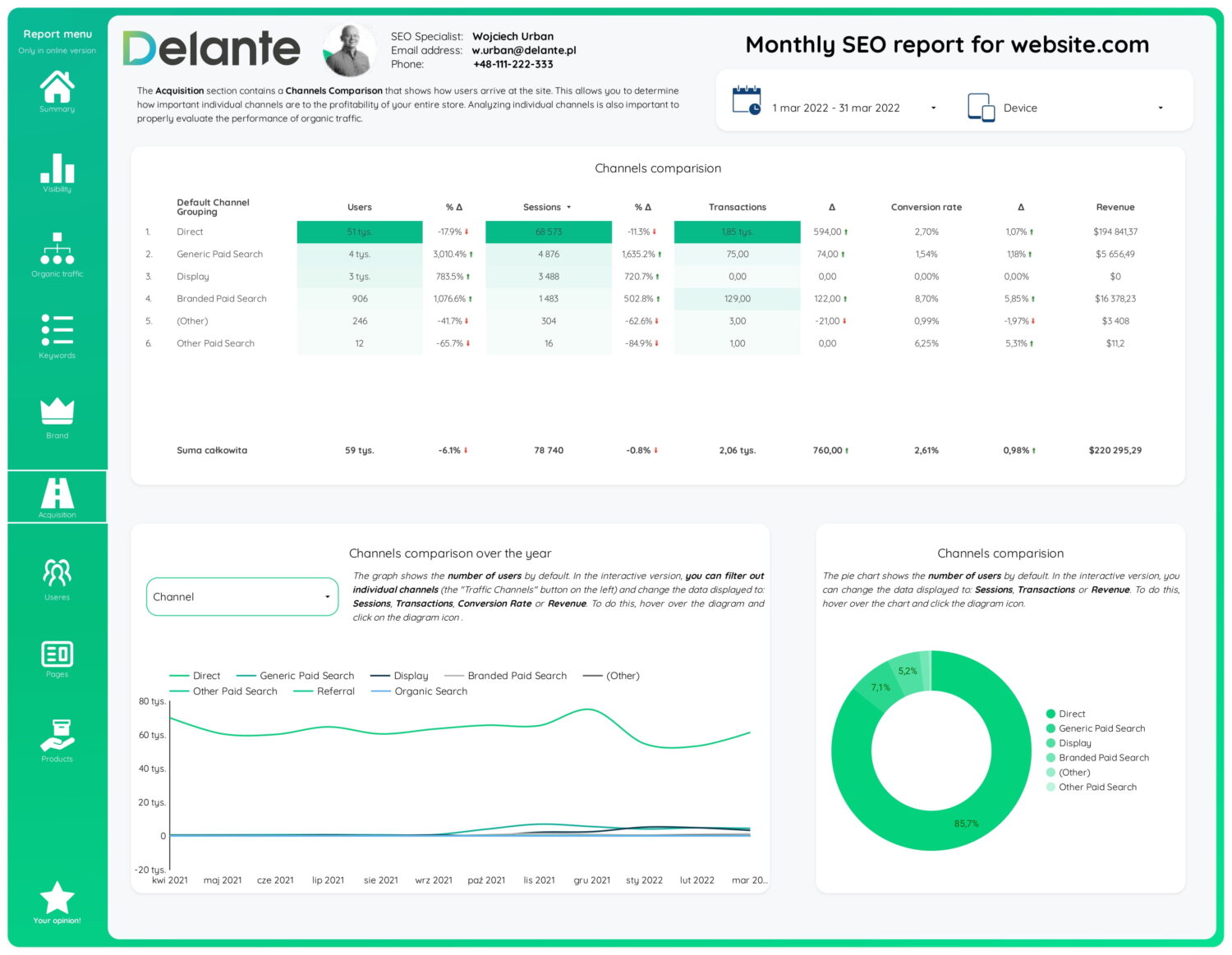
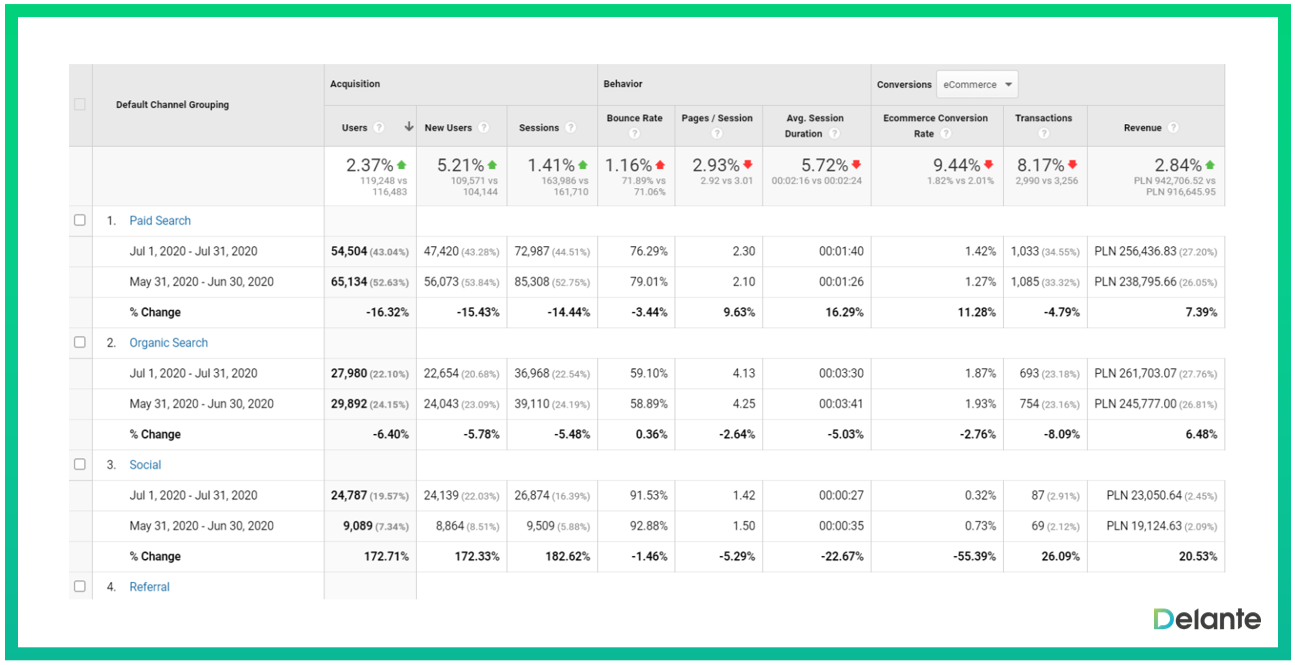
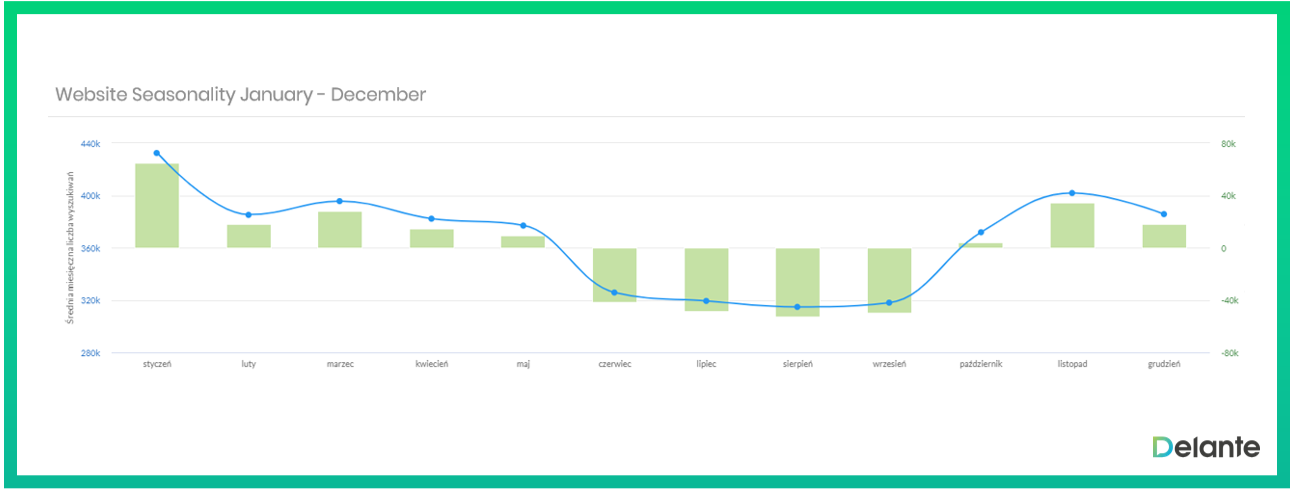
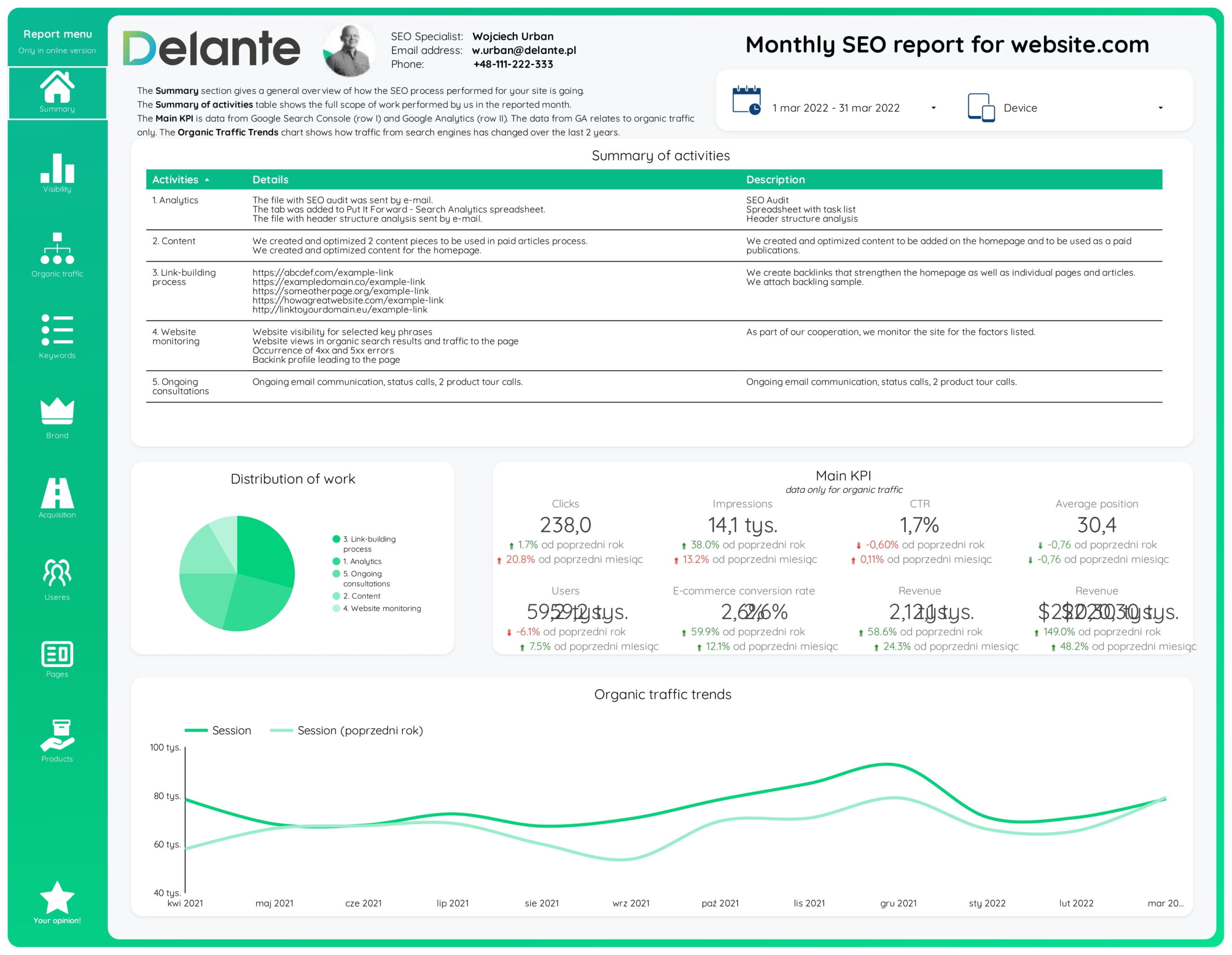



Thanks for the article, Wojciech! I was wondering, is there any particular order that should be kept in the SEO report? Don’t know if that’s important but maybe there’s some logical flow that should be maintained?